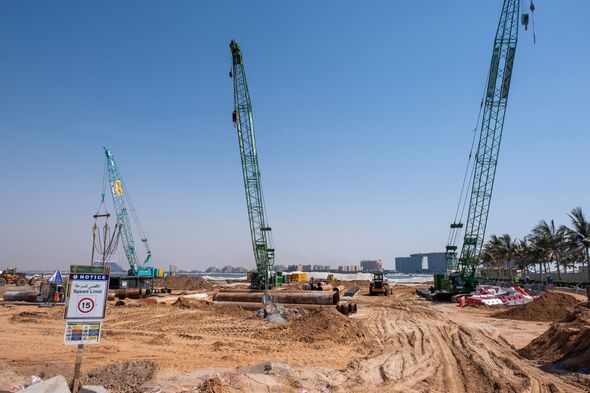The Iraqi government is planning huge investments in infrastructure and housing despite a rising deficit, falling oil export prices and poor fiscal reforms.
But the ability of Prime Minister Mohammed Shia al-Sudani’s government to fund these projects, in spite of its financial constraints should pique the interests of foreign policy departments across the region and the Western world. It comes as Iraq is planning to allocate 55 trillion Iraqi dinars (£32bn) to mega-projects as part of its 2024 budget.
Iraq’s recent history has been plagued by war, sectarian violence and political instability. The liberation of large swathes of territory from ISIS and a pledge to bridge the sectarianism predominant across the country has allowed the incumbent Iraqi government to look to rebuild following decades of turmoil.
One such area of focus has been the development of the country’s road network, destroyed by years of war, to allow for the movement of people and goods and help drive the recovery of the nation’s economy.
This is nothing new, with previous post-war governments as well as the regime of Saddam Hussein pledging to do the same only for public money to disappear into the vacuum of corruption.
Iraq’s limited coastline, consisting of a measly 58km stretch to its south, offers opportunity to accelerate the country’s export of oil if appropriate investment can be delivered to the creation of a deep seaport allowing large cargo ships to dock.
But top of the rebuild agenda is housing, with overcrowding in major Iraqi cities leading to an estimated deficit of 300,000 houses.
To combat this, the Iraqi government has pledged to construct new residential cities outside of Baghdad with construction contracts already being awarded to local and foreign firms.
One such city, Al Jawahiri, promises the creation of 30,000 housing units at a cost of $2 billion, none of which is being financed by the Iraqi government.
The contracts for the creation of Al Jawahiri were awarded last late last year to two Chinese firms: East China Engineering Science and Technology Co. Ltd and China National Chemical Engineering Co., Ltd, a clear signal of intent on behalf of the Chinese Communist Party to expand their belt and road initiative further into the Middle East.
The largest of these housing projects, the residential mega-city of Ali Al-Wardil is planned to provide over 100,000 housing units, as well as urban facilities, green spaces, and smart technology, the contract for its construction was awarded to Egypt’s ORA Developers earlier this year.
The implications of this from a geopolitical standpoint should not be underestimated.
The Chinese belt and road initiative is major infrastructure investment launched by President Xi Jinping in 2013 with the aim of expanding connectivity and prosperity across Africa, Asia and the Middle East.
Critics of the initiative have claimed that it is merely a “debt-trap” designed to lure foreign governments into expensive infrastructure projects with the aim of expanding Chinese influence for decades to come.
The expansion of the project into Iraq comes at a time of heightened tensions in the region with Israel’s conflict in Gaza and its face off with Hezbollah in Lebanon providing the battleground for wider geopolitical jostling.
Iraq’s central geographic positioning makes it strategically important for those seeking to gain the upper hand in the region.
Key figures within the Iraqi government played key roles in establishing the modern state following the downfall of Saddam Hussein and the US maintains a military presence in the country despite calls from President Al-Sudani for the establishment of a timeline for withdrawal.
Yet Iraq sits firmly on the fence. The Shia majority country has developed increasingly stronger links with the shia theocracy in Iran, one of the region’s major players believed by many to be the principal planners and funders of Hamas and Hezbollah in their war with Israel.
If Iraq is to develop and provide a better life for its citizens, foreign investment is vital in allowing it to do so. But as major powers vie for influence in the region, the west should be aware of the dangers posed by greater Chinese and Iranian influence in Baghdad.
